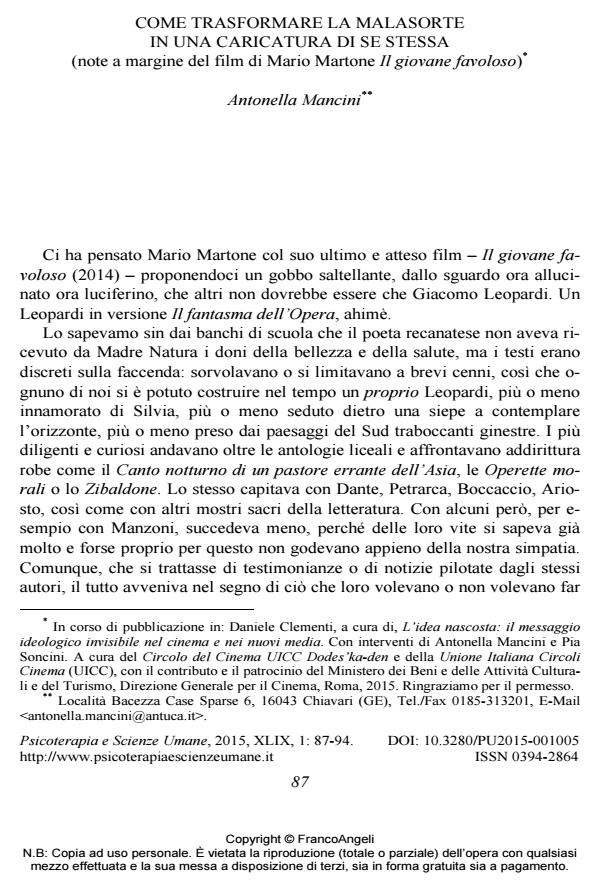How to transform someone’s misfortune into a caricature. Notes on Mario Martone’s movie Leopardi (2014).
Journal title PSICOTERAPIA E SCIENZE UMANE
Author/s Antonella Mancini
Publishing Year 2015 Issue 2015/1
Language Italian Pages 8 P. 87-94 File size 35 KB
DOI 10.3280/PU2015-001005
DOI is like a bar code for intellectual property: to have more infomation
click here
Below, you can see the article first page
If you want to buy this article in PDF format, you can do it, following the instructions to buy download credits

FrancoAngeli is member of Publishers International Linking Association, Inc (PILA), a not-for-profit association which run the CrossRef service enabling links to and from online scholarly content.
The long-awaited 2014 film by Mario Martone on Giacomo Leopardi - Il giovane favoloso (Leopardi, in the English edition) - gives the opportunity to make some critical considerations on the public disclosure of biographical information. At the basis there is the issue of subjectivity. With which instruments or methods should we deal with it? And what are the boundaries of the private life of a person we should not cross? What is "true - and what is "false" in this area? What are the responsibilities of psychoanalysis and of psychological disciplines in general? It is not questioned the usefulness of knowing and disseminating the details of a life, but the way in which this is done, keeping into consideration the laws of communication. Leopardi’s life, as recounted by Martone in this movie, is an example of what really should not be done on the subject of biography.
Keywords: Giacomo Leopardi, Mario Martone, biography, subjectivity, popularization
Antonella Mancini, Come trasformare la malasorte in una caricatura di se stessa. (Note a margine del film di Mario Martone il Giovane Favoloso) in "PSICOTERAPIA E SCIENZE UMANE" 1/2015, pp 87-94, DOI: 10.3280/PU2015-001005